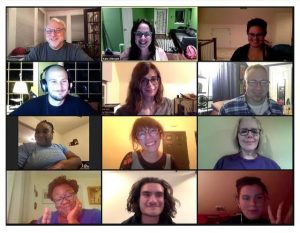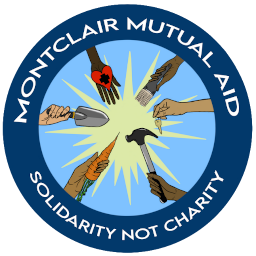Old — Getting involved locally

Do you want to engage your neighbors to work together and advocate for a change?
It all starts with figuring out who you already know and how to strengthen a network of relationships with your neighbors.
A helpful exercise to identify your current connections and those you’d like to deepen is “pod mapping,” or writing out who you can turn to for different kinds of support. This concept originally comes from the Bay Area Transformative Justice Collective in CA. For more information and to try out mapping your own pod, visit their website.
Once you’ve identified who you already know, who they know, and who you’d like to know better, you can make a neighborhood contact list and start reaching out to other neighbors not yet included in the network of connections. If there’s a specific issue you’re interested in taking action on, you can meet (virtually) with individual neighbors and with the whole group to find out who else is concerned about that issue and how to go about working for change. (Adapted from “Phoenix Tenants – COVID Organizing Toolkit“)
Even if you don’t want to organize a neighborhood group for a specific goal, spending the time and energy to develop stronger relationships in your neighborhood can pay off in other ways. Getting to know your neighbors through individual conversations or community events — like outdoor or virtual block parties — helps you be on better terms and feel more comfortable if, for example, one of your neighbors has a loud gathering outside their home and you want to ask them to quiet down. (Adapted from “12 Things To Do Instead of Calling the Cops“)
Do you want to have more of a say in town government?
The Township of Montclair has numerous Advisory Committees, Boards, and Commissions that residents can join, to give their input and advise the Town Council. They include:
- The Arts Advisory Committee advises the Town Council on a range of arts issues, like space, services, funding, advocacy, and arts education, to promote cultural enrichment, education, and a strong economy in town.
- The Board of Education sets the vision for the public school district, in addition to other responsibilities, like working with the Superintendent, creating the District budget, and communicating with the community.
- The Civil Rights Commission recommends programs designed to eliminate discrimination, addresses problems involving tensions in the community and reviews the Affirmative Action Policy.
- The Development Review Committee reviews site plan applications or requests for development, to determine compliance with the Township’s zoning requirements, development regulations and design standards.
- The Environmental Commission guides the Township to reduce carbon emissions, build climate resilience, advance environmental justice, and protect our living environment by advising, advocating, educating, developing policy and leading new initiatives.
- The Historic Preservation Commission protects the Township’s architectural heritage and increases public awareness of the historical and cultural dimensions of the Township’s buildings, streetscapes and landscapes.
- The Housing Commission implements the Township’s Affordable Housing Strategy and works with local non-profit housing organizations to advance affordable housing initiatives.
- The Landlord/Tenant Housing Committee, composed of tenants, landlords, and homeowners, advises the Town Council and staff on housing issues and directly assists with landlord/tenant issues.
- The Montclair Community Intervention Alliance administers a State-funded grant supporting local groups that promote substance abuse prevention and advises the Town Council on related matters.
- The Parks & Recreation Advisory Committee advises the Town Council on the renovation and maintenance of facilities like parks, playgrounds, public pools, and the ice skating arena; recreation programs; and special events.
- The Pedestrian Safety Committee carries out the “Drive with Care in Montclair” campaign, encouraging safe driving behaviors through a variety of media including banners, flyers and a forum on traffic safety.
- The People with Disabilities Committee, composed of people with disabilities, parents of disabled children, and representatives from organizations that serve the disabled, recommends programs, policies, and legislation that benefit individuals with disabilities.
- The Planning Board prepares the Township Master Plan, reviews applications for development, and advises the Town Council on changes to the land use ordinance.
- The Public Transportation Advisory Committee focuses on issues relating to commuter bus and train service and oversight of the evening shuttle service.
- The Senior Citizens Advisory Committee assesses services and issues important to Township seniors, makes recommendations to the Town Council and staff on programs and policies, and serves as a liaison to seniors throughout town.
- The Traffic and Parking Advisory Committee, composed of Township employees, residents, and business owners, studies traffic and parking issues and advises the Town Council on solutions and policies.
- The Zoning Board of Adjustment hears appeals, grants variances from the strict application of the zoning ordinance, and rules on land use applications.
Anyone can watch a Board or Commission meeting on TV, on channel 34, or on the Township’s YouTube channel. For more information on Advisory Committees, Boards, and Commissions, including meeting times or how to apply to be on one, visit the Township website here and here.
Additionally, anyone can watch a Township Council meeting on TV, on channel 34, or on the Township’s YouTube channel. For more information on the Township Council, including meeting times, visit the Township website. (Note: “regular” meetings are publicly aired while “conference” meetings are just for the Council.)
